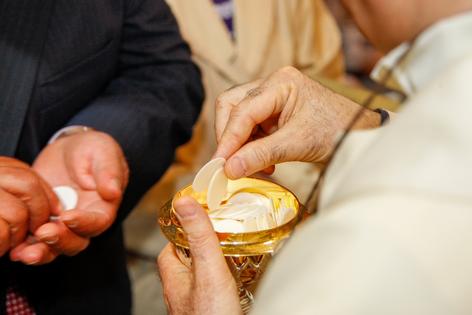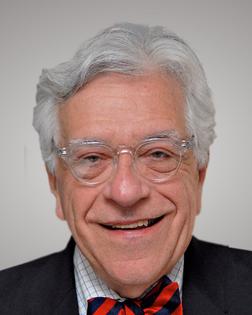The God Squad: What happens in Communion?
Q: Many Christian readers, fresh off their Easter Communion services, wrote to me to ask me about the actual Christian belief about the bread and wine turning into the body and blood of Christ. Thankfully, you don’t have to rely on a rabbi’s interpretation. C, from Walla Walla, Washington, helpfully wrote in with her understanding of this mysterious and fundamental Christian sacrament:
“I have seen reference previously in your column re: communion beliefs of the denominations, and this time decided to share with you the fact that there are three (3) different views. I am surprised that no one has cleared this up in the past. The Roman Catholic Church teaches that the bread and wine are changed into the body and blood of Christ when the priest speaks the words of consecration. This is called transubstantiation. In certain Protestant denominations, like the Reformed Church, the official belief is that the bread and wine are just symbols, or signs, of the body and blood of Christ and that the words "This is" really means "This signifies" or "This should remind us." The Lutheran church, however, has its own doctrine which says that the earthly and heavenly elements are united so that with the one we also receive the other: with the bread and wine we receive the body and blood of Christ. The two are united only for the purpose and for the duration of the eating and drinking. Without eating and drinking there is only bread and wine.
I am merely a layman, but remember what I was taught in confirmation class so many years ago, and used “An Explanation of Dr. Martin Luther's Small Catechism” by Dr. M. Reu in setting forth the above explanation. Unfortunately, many church members of any of the denominations do not have an understanding of what their church believes and teaches regarding Holy Communion.”
Thank you, dear C. For me, the significance of the Sacrament of Communion is different but similar to the symbols on the Passover plate. The point of both Passover and Easter is to remind believers of our formative story and to invite us to enter the story for ourselves. If we believe that we ourselves also left Egypt then the Exodus is not an ancient fable but a personal challenge to escape Egypt every single year which means to escape the situations that keep us enslaved and unable to reach for a life of freedom.
The point of Communion, as I view it from outside the Christian faith, is to remind Christians that the death of Jesus was an atoning death. Jesus sacrificed his life to free the world of sin. That is not just an ancient event. That is a personal gift to every single Christian to witness that gift and live a life that honors that gift and to spread the news of that gift. The bread and wine entering your body must be understood as the gift of God’s love entering your soul.
Some stories are bigger than stories and this season of liberation contains the two most powerful stories in the western spiritual traditions.
Q: Good Afternoon, Rabbi Gellman. I wonder if you could send me your article regarding not to be cremated. I read your article years ago in Newsday but didn’t cut the article out. I thought I wanted to be cremated but your explanation encouraged me to be buried instead. I am Catholic. I have made my wishes known to my family about being cremated but am now thinking of being buried. Thanking you in advance. – (From A)
A: Happy to help you by summarizing my arguments against cremation. Let me begin with the conclusion. Cremation is against Jewish law, but it is increasingly common and often cremains are then buried in a grave. Catholicism also discourages cremation, but they do allow it. So, the choice is yours. Many people are choosing cremation because of the lower cost.
These are my reservations:
– Graves give the mourners a place to gather and pray and tell stories about their loved one who is buried there.
– “Dust to dust and ashes to ashes” is meant to be a gradual process. There is no need to speed it up by cremating the deceased.
– Placing the ashes in the home violates the important separation between a cemetery as a place of death and a home as a place of life.
– Scattering ashes means a total erasure of a person’s life
– Cremation causes lots of pollution and uses huge amounts of energy. Burial is eco-friendly.
– For Jews, cremation connects to terrible memories of the holocaust.
(Send ALL QUESTIONS AND COMMENTS to The God Squad via email at godsquadquestion@aol.com. Rabbi Gellman is the author of several books, including “Religion for Dummies,” co-written with Fr. Tom Hartman. Also, the new God Squad podcast is now available.)
©2025 The God Squad. Distributed by Tribune Content Agency, LLC.
(c) 2025 THE GOD SQUAD DISTRIBUTED BY TRIBUNE MEDIA SERVICES, INC.












Comments